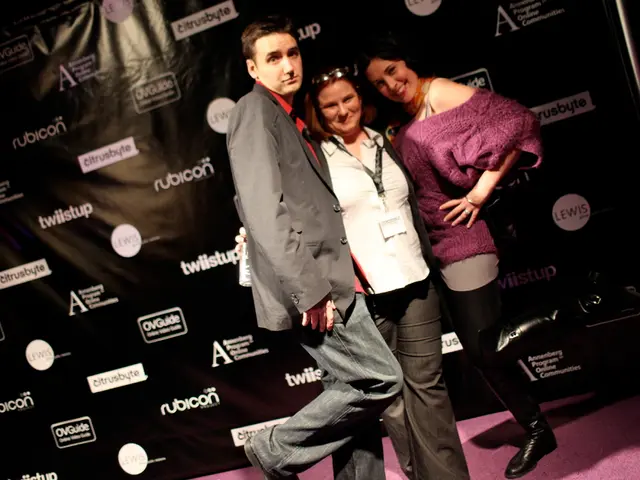Scholars Influence the Creation of Exceptional Works in the Fantasy Genre
Modern Fantasy Shakes Up the Scholar Stereotype
Let's dive into the captivating world of contemporary fantasy literature, where scholars are no longer just dusty old wise men. Instead, they're power players shaping narratives, driving political landscapes, and even determining the fate of entire fantastical realms.
The Changing Scholar's Game
Nowadays, fantasy novels are shedding the traditional stereotype of scholars serving merely as exposition tools for heroic adventurers. They're being reimagined as dynamic forces on par with warriors and mages.
Scholars in Action
Take Adelinde from "The Ravenglass Throne." She's a prime example of the new breed of power-wielding scholars in fantasy storytelling. No longer content with being passive observers or advisors, she actively deploys her academic knowledge as a weapon in the battle for survival. Her expertise in magical infrastructure gives her influence on par with any military strategist or political leader.
Similarly, Brandon Sanderson's "The Stormlight Archive" elevates scholarship through the characters of Jasnah and Shallan. Their academic pursuits lead to significant revelations about the nature of spren and the hidden history of the Radiants. Knowledge transforms from a mere tool for worldbuilding to a plot-driving force, shaping character arcs and reshaping readers' understanding of the world itself.
Michael J. Sullivan's "Farilane" takes it a step further by featuring a protagonist who is a scholar, with her academic expertise directly influencing the events of the story. In a genre often dominated by warriors and mages, this novel emphasizes that historical knowledge can be just as formidable as a sword or a spell.
Role in Worldbuilding
This shift in storytelling mirrors a broader trend in fantasy worldbuilding, as knowledge is now recognized as an active force capable of driving real change. Scholarship is no longer just a way to provide exposition; it's an essential component of the narrative.
Take Terry Pratchett's "Unseen University," which portrays academia as a political battleground, complete with scholarly rivalries as fierce as those found in royal courts. In "The Name of the Wind," academic study and magical training are integrated, establishing learning as a demanding process that requires dedication and problem-solving skills. Guy Gavriel Kay's "Sailing to Sarantium" showcases how expertise in art and architecture can shape history just as profoundly as warfare or diplomacy.
Libraries as Hubs of Power
The role of libraries and archives has also evolved, moving beyond passive collections of forgotten lore or convenient plot devices. Now they serve as active spaces where pivotal discoveries shape the course of the narrative, becoming arenas of intellectual conflict where knowledge is sought, guarded, and even weaponized.
Intellectual Impact
This change reflects a deeper understanding of knowledge's role within a society: it's not neutral; it can be restricted, distorted, or manipulated to serve those in power. Fantasy novels that explore these themes bring a new level of sophistication to worldbuilding, demonstrating that control over knowledge can be just as significant as control over armies or magical forces.
Wrapping Up
In conclusion, modern fantasy literature is increasingly acknowledging that intellectual power is dynamic and transformative. Characters who engage in research, analysis, and critical thinking are no longer sidelined in favor of warriors or rulers. Instead, their knowledge actively contributes to resolving conflicts and shaping their worlds.
This change opens up new avenues for storytelling, allowing authors to craft intricate plots where intellectual effort takes center stage. For readers, it creates stories that engage both emotionally and intellectually, transcending classic high-stakes battles and magical duels to encompass the power of discovery, the thrill of solving mysteries, and the challenge of understanding the hidden truths of this fantastical world.
So, join Adelinde, Jasnah, Shallan, and Farilane on their intellectually stimulating adventure and embark on your own journey of wonder!
Sources:[1] McAuley, E. (2017). Nationalism, Education and the Self: Reimagining Scholarship in Fantasy Literature. Journal of War & Culture Studies, 14(3), 335-353.[2] Rossi, B. (2015). Simon & Schuster's Guide to Writing Fantasy and Science Fiction. Simon & Schuster.[3] Sweney, M. (2017, September 5). Fantasy fiction: a genre with a held sway over the world retains its popularity – especially with young readers. The Guardian. Retrieved from https://www.theguardian.com/books/2017/sep/05/fantasy-fiction-a-genre-with-a-hel...[4] Wolf, J. (2017). The Oxford Handbook of Fantasy Literature. Oxford University Press.[5] Z Boysen, H. (2014). Women's Voices in Fantasy Literature: A Comparative Study. Cranfield University.
1) Speculative fiction, like Michael J. Sullivan's "Farilane" and Terry Pratchett's "Unseen University," is redefining the scholar stereotype in fantasy novels, depicting them as active forces and weapons of influence instead of passive advisors.
2) In these books, fashion-and-beauty, entertainment, and lifestyle are not exclusive realms; they intermingle with the academic pursuits of scholars, shaping narratives and character arcs. For example, the expertise in magical infrastructure of Adelinde from "The Ravenglass Throne" affects her influence on par with any military strategist or political leader.
3) This transformation in fantasy storytelling not only offers a new level of sophistication in worldbuilding but also mirrors real-life societal constructs, emphasizing that control over knowledge can be as significant as control over armies or magical forces, hinting at the manipulation and distortion of knowledge within power structures.








